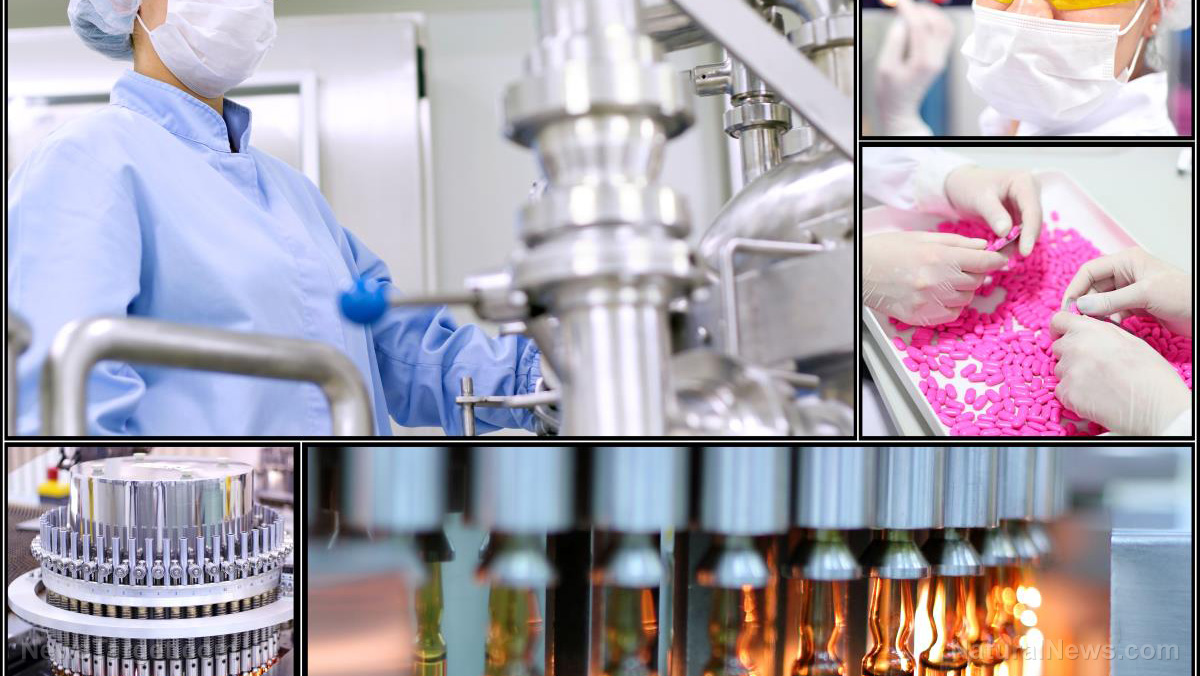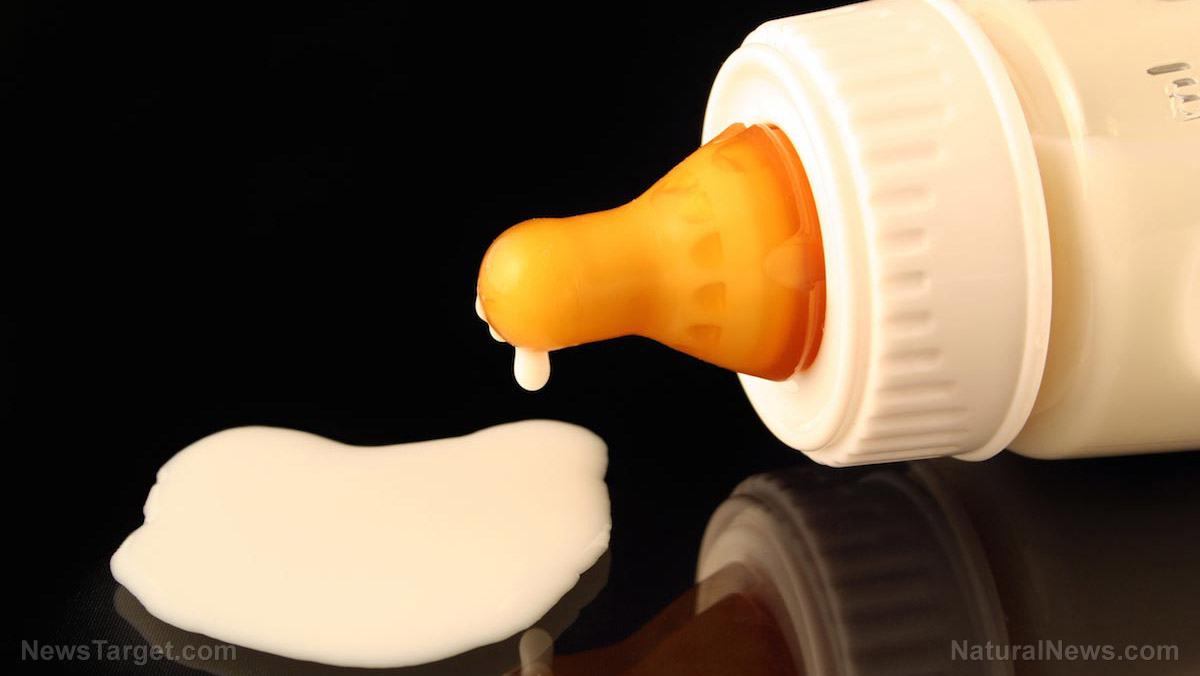It’ll be at least another 10 weeks before Abbott reopens and starts getting baby formula back in stores (though Romney wants them to reopen NOW and sell contaminated product)
05/13/2022 / By Ethan Huff

Once the U.S. Food and Drug Administration (FDA) decides to allow Abbott Laboratories to reopen its Sturgis, Mich., plant, it will take at least another 10 weeks for baby formula to get back on store shelves.
In all likelihood, it will take 12 weeks from the time of this writing for Abbott baby formula products to reappear in grocery and drug stores since it is expected that the soonest the FDA will allow the plant to reopen is two weeks from now.
The plant closed in mid-February after contamination issues were linked to numerous reports of infant illness and death. Abbott, of course, denies the contamination, saying “there is no evidence to link our formulas to these infant illnesses.”
Congress is convening in two weeks to address the baby formula shortage that resulted from the fiasco.
Sen. Mitt Romney (R-Utah), meanwhile, is demanding that the FDA reopen the plant immediately, presumably because he holds some kind of financial or political stake in the company.
Romney claims that he is simply concerned about the lives of babies, but this is doubtful.
“We understand the situation is urgent – getting Sturgis up and running will help alleviate this shortage,” Abbott said in a statement.
“We would begin production of EleCare, Alimentum and metabolic formulas first and then begin production of Similac and other formulas. From the time we restart the site, it will take six to eight weeks before product is available on shelves.”
Abbott implements “corrections” at plant after claiming its formulas are not linked to infant illness and death
The House Energy and Commerce Committee has called the situation “increasingly alarming,” but Romney insists that not reopening the dirty plant immediately is “risking the lives of infants across the nation.”
Abbott has been shut down for about three months now, and a March 18 inspection identified numerous areas where the company can improve its systems and protocols.
On April 8, the FDA issued a report stating that it takes the matter “very seriously” and will come up with a solution soon.
“Even before our formal response, we had begun working to address these issues, implement improvements and take corrective action,” Abbott said in a contradictory statement to the other one it made about its products having no link to the infant illnesses and deaths.
Abbott says it “immediately implemented” corrections after the FDA raised concerns about the situation.
“We’ve been seeing and hearing the stress and despair of parents who are facing empty shelves,” Abbott said.
“We deeply regret the situation and since the recall, we’ve been working to increase supply at our other FDA-registered facilities, including bringing in Similac from our site in Cootehill, Ireland, by air and producing more liquid Similac and Alimentum.”
“We also began releasing metabolic formulas that were on hold earlier this month at FDA’s request to those who need these unique formulas,” the company added.
More than half of America is 40-50% out of baby formula stock
Upwards of 40 percent of large retail stores throughout the country are currently out of stock of baby formula, up from 31 percent in mid-April, according to data analytics firm Datasembly.
More than half of the country is seeing out-of-stock rates of between 40 percent and 50 percent, Datasembly says based on data it collected from 11,000 locations.
The shortage has prompted retail chains Target, CVS and Walgreens to start limiting purchases to no more than three containers of baby formula per customer.
“The nationwide infant formula shortages are increasingly alarming and demand Congress’ immediate attention,” said Rep. Farnke Pallone (D-N.J.).
“This is an urgent issue that the FDA as you all know and the White House is working 24/7 to address,” added White House spokesperson Karine Jean-Pierre. “They are committed to pulling every lever and are ready to making progress and getting more supply onto the market.”
Romney, meanwhile, is flipping out about the situation, calling on both the FDA and the U.S. Department of Agriculture (USDA) to do more to address the situation because of the “serious implications of the current shortage on infant health.”
“The responsibility falls on the FDA and the USDA to protect infant health by ensuring they have access to safe formula,” Romney wrote in an urgent letter to FDA Commissioner Robert Califf and Secretary of Agriculture Tom Vilsack.
“Given the serious implications of the current shortage on infant health, I am deeply concerned about the apparent lack of an effective mitigation strategy and urge both agencies to move as fast as possible to safely resolve this situation.”
Sarah Sorscher from the Center for Science in the Public Interest (CSPI) says that the plant cannot immediately reopen because there is “still some risk” from the formula, plus the FDA “hasn’t identified a root cause.”
More related news about the FDA and the baby formula crisis can be found at FDA.news.
Sources for this article include:
Submit a correction >>
Tagged Under:
Abbott, baby formula, child health, contaminated, FDA, fraud, infant formula, recipe, Romney
This article may contain statements that reflect the opinion of the author
RECENT NEWS & ARTICLES
COPYRIGHT © 2017 FDA NEWS



















